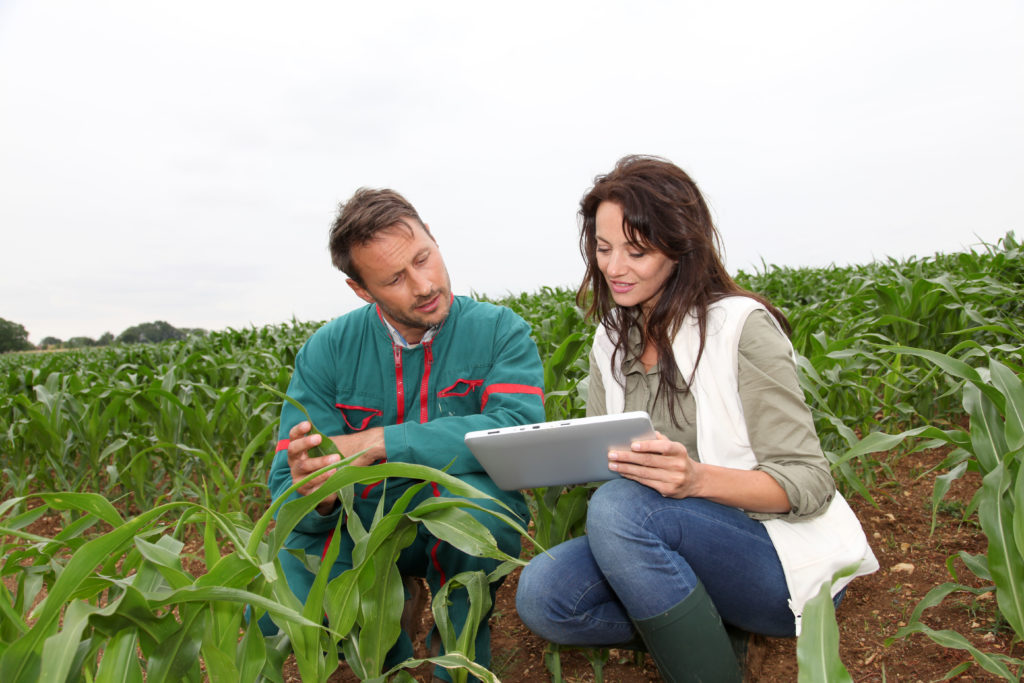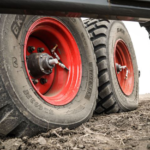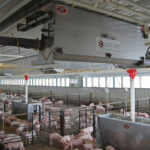If Earth Day is about sustainability, look no further than precision farming.
If ever there was a profession that tied someone’s livelihood, success, pride, and even tradition to their little piece of this Earth, it’s agriculture. Precision farming is contributing to environmental preservation in a variety of ways.

If Earth Day is about sustainability, look no further than precision farming.
If ever there was a profession that tied someone’s livelihood, success, pride, and even tradition to their little piece of this Earth, it’s agriculture. Precision farming is contributing to environmental preservation in a variety of ways.“It is not the critic who counts; not the man who points out how the strong man stumbles, or where the doer of deeds could have done them better. The credit belongs to the man who is actually in the arena, whose face is marred by dust and sweat and blood; who strives valiantly; who errs, who comes short again and again, because there is no effort without error and shortcoming; but who does actually strive to do the deeds; who knows great enthusiasms, the great devotions; who spends himself in a worthy cause; who at the best knows in the end the triumph of high achievement, and who at the worst, if he fails, at least fails while daring greatly, so that his place shall never be with those cold and timid souls who neither know victory nor defeat.”― Theodore Roosevelt
With the recent passing of Earth Day, and the many articles, social media posts, and hashtags that flooded our news feeds, triggering self-awareness of our impact on the world around us, I couldn’t help but hope while scrolling that someone would give some credit to the farmer. Unfortunately, except for those in the industry, I didn’t see it once.
If ever there was a profession that tied someone’s livelihood, success, pride, and even tradition to their little piece of this Earth, it’s agriculture. As farmers use every possible acre of their land, which often houses the setting for the stories of their heritage, to produce food for our growing population, they hardly seem to receive the recognition their noble occupation warrants. This certainly isn’t unique to farmers, as every industry has its own negative publicity, but it has always seemed wholly ungrateful to me when some people question the source of the food on our tables.
I believe Theodore Roosevelt said it more eloquently than I ever could, but I kept wondering what it would take to educate the critics on the outskirts of agriculture, since the only (potentially) useful defense against the skeptic is cold hard facts, statistics, and data that cannot be argued. It was then that I realized the role of precision farming could reach far beyond the metrics of increasing yield, lowered input costs, and providing greater visibility into the operation. If Earth Day is about sustainability, look no further than precision farming.
Precision farming is contributing to environmental preservation in a variety of ways. By limiting the use of chemicals to only the amounts that are truly needed, through use of rate and section control technologies, farmers are working to curb the water pollution that results from excess application of fertilizers, pesticides and herbicides. In many instances, farmers are eliminating overlaps and making fewer trips through the field, which cuts down on soil compaction, as well as their carbon footprint, as the machines are running less and getting the same job done.
Additionally, by capturing volumes of data, farmers are able to adhere to governmental regulations and provide transparency into their operation. In a testimony regarding big data in agriculture that took place in front of the House Agriculture Committee, Vice President of AGCO’s Global Fuse Product Line, Matt Rushing, stated, “Agriculture data is the ultimate grower tool to minimize risk and increase profitability while enabling them to become better stewards of the land.” As our population becomes increasingly concerned with understanding the source of our food, it will be precision farming that provides the data that can enable us to link the crop back to the GPS coordinates of the field it was harvested from, as well as supplement this with the farmer’s data surrounding every phase of the crop cycle.
By eliminating guesswork and assumptions, precision farming is arming the farmer with data that proves the irrefutable truth—that farmers are constantly striving to optimize their operation, bringing them closer to reaching their goal of providing an adequate food source to meet our mounting demand.
By Jennifer Parillo
Jennifer Parillo is a marketing specialist for the global Fuse team. Learn more about AGCO’s precision farming technology solutions by visiting www.AGCOcorp.com/Fuse.



